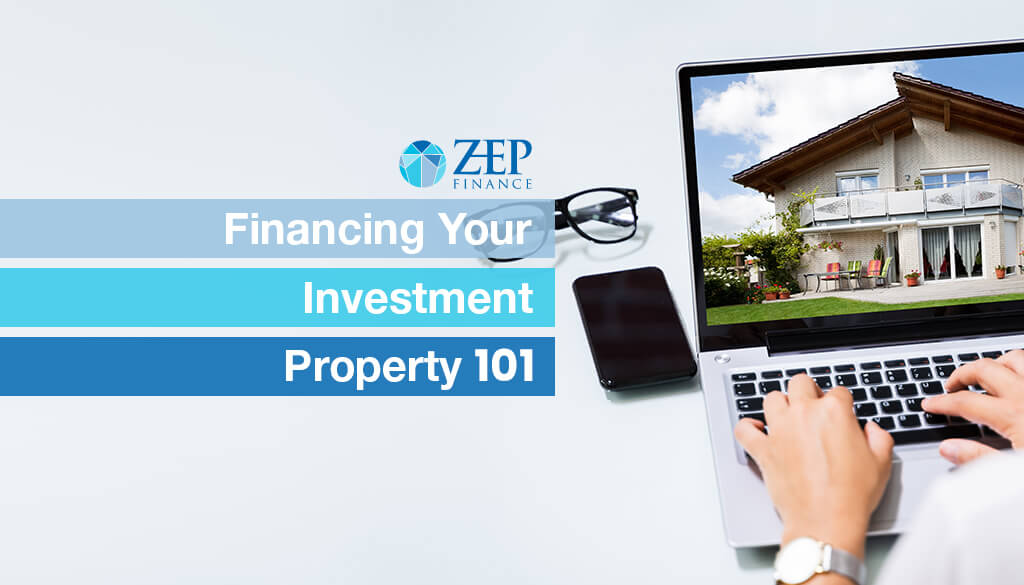If you’re looking to invest in property, you’ll need to finance it in some way. There are a few different investment property loan options available to Australian investors, so it’s important to understand the differences before making a decision.
In this blog post, we will help you figure out your borrowing power and give you a few tips on buying an investment property. So read on – and start paving the way to investment success!
Speak with a Mortgage Broker Ballina
Speak with a Mortgage Broker Byron Bay
Speak with a Mortgage Broker Lismore
Speak with a Mortgage Broker Northern Rivers
What is a property investment?
A property investment is an investment in a property, usually a house or land, with the aim of earning a return on the investment. It is a common path of wealth creation for Australians.
There is always demand for property in the real estate market because of the potential for capital growth, tax benefits, and rental income.
How does property investment work?
Property is a cyclical investment and comes with a lot of benefits and risk. Property prices typically grow in value over time, and there is always a market for renters and people who need housing. It can be a good source of secondary income and tax and depreciation advantages.
However, an investment property is not a liquid investment, and you won’t be able to easily access it if you need money immediately. There is also the possibility that it will yield low rental returns and perform poorly in the property market.
What are the costs of investing in property?
There are property attributes that impact its price, e.g., location/postcode, population, suburb yield, dwelling size, housing densit, and exposure among other factors. You’ll want a investment property strategy to determine what kind of property you want to invest in and how much you’re willing to pour into it:
- Do you want to generate a new income stream?
- Is your investment property going to fund your retirement?
- Are you in the business of buying renovation properties and trading them for quick profits?
Below are staple costs to investing in a property:
Upfront costs in buying a property investment: |
|
Ongoing costs of an investment property: |
|
How to buy investment property: commonly asked questions around financing your property investment Australia
Investment loans are generally more expensive because they are perceived as having a higher risk than standard mortgages. The lending criteria is also more strict and this is so banks and lending institutions can minimise their risks.
How do I qualify for a loan on investment property?
- 5% to 10% genuine savings
- A solid employment history
- An above average credit history
- Savings account with aged funds
- A low debt to income ratio
How much deposit do I need for investment property?
Typically, you must present 20% of the property’s value as deposit to avoid paying the Lenders Mortgage Insurance premium (LMI).
How much can I borrow for an investment property?
You can present as little as 5% deposit or borrow over 90% of the property’s value if you have built enough equity in your home. Here are some tips to increase your borrowing capacity:
- Tidy up your debts
- Reduce your credit card limits
- Opt for lenders with favourable terms for investors
- If you have a spouse, it might be worth considering a joint application to maximise both your income
- Purchase positively geared investment properties
- Remember that assessment rate for investment property loans are different: lenders add up to 2% to the current rate to make sure you can afford the loan in the event the rate increases
How much super do I need to buy an investment property?
The amount of money needed isn’t set in stone, but general rule of thumb suggests around $200,000 to $250,000. This amount can cover the cost of setting up self-managed super funds (SMSF), high bank fees, and the required deposit. Some lenders do require 30% deposit or more when buying through your SMSF.
How to use equity to buy investment property?
You have to tap into your usable equity, which is calculated as 80% of your property’s current value minus what is still owing on the mortgage, to buy investment property. A formal bank valuation may be required to determine the current value of your home and calculate the usable equity in it.
Let ZEP Finance help pave your path to wealth creation
We hope this article has helped clear up questions you may have had and that you feel confident in taking the next step on your property investment journey.
If you’re still not sure where to start, or would like some help getting started, don’t hesitate to get in touch with the team at ZEP Finance. We’d be more than happy to assist you in finding the right investment loan for your needs and making your investment property purchase as successful as possible.
Consult with a mortgage broker for investment property

After studying business and finance at university, Zain initially expected to pursue a career in finance. However, his passion for property and the experience of buying his own home led him to mortgage broking. He began his mortgage brokering career in 2009 and founded ZEP Finance in 2010.








